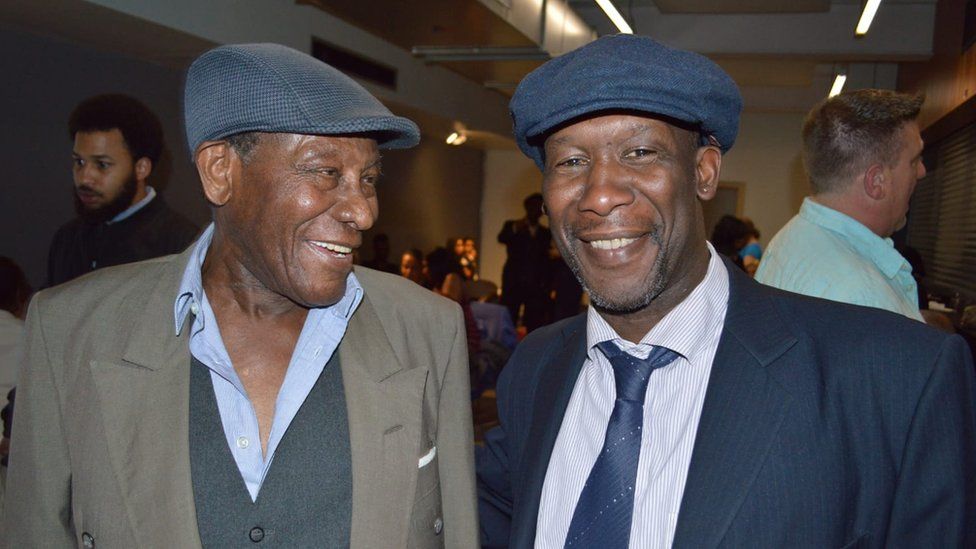Windrush Day: Bristol students' art honours West Indian elders
- Published

University students in Bristol have been charting West Indian migrants' input into their city to mark the UK's fourth annual Windrush Day.
They have made art and recorded stories from the city's Caribbean elders.
Roger Griffiths MBE, one of the team leading the project, said it would explain how much the migrants "give and continue to give" to British life.
Filmmaking student Sam Badby said he had learned things about his grandparents he never knew.
He is one of a team of students at the University of the West of England (UWE) that has been gathering together the stories of some of the elders of Bristol's Caribbean community.
Mr Badby said: "Being a young, mixed-race man, I have always struggled with my identity and where I fit in.
"It has opened many conversations about my family history between me and my mother.
"It was amazing to hear some of the stories my mother told from her younger years and to learn about the struggles she went through as a young black woman growing up in England."
Windrush Day is an annual event, which has been celebrated on the 22 June since 2018, that commemorates the first wave of West Indian migrants that came to the the UK 73 years ago, in the aftermath of World War Two.
Many of the arrivals became manual workers and nurses - and some broke new ground in representing black Britons in society.
The Windrush scandal, which broke in April 2018, saw the UK government apologise for deportation threats made to Commonwealth citizens' children.
Mr Griffiths, who is an associate lecturer at UWE, said the students films and visual art focused on things like sport, music and the annual St Paul's Carnival, as well as pivotal moments such as the St Paul's riot, the Bristol bus boycott and the downing of the statue of slave trader Edward Colston.
"This Caribbean history is British history, it's our history," he said.
"Some people in central government seem to forget the contributions. We've given so much to this country, and we continue to give."
Bristol's deputy lord mayor, Carole Johnson, supported the project and her own parents were also part of the first Windrush wave.
"When they did get here the welcome was not what they expected and instead of a warm embrace they found that there was some extreme hostilities and discrimination," She said.
"Generational interaction is so very important, because although some of our Windrush generation are not with us anymore, their children and grandchildren are and some of those people are still struggling."
Follow BBC West on Facebook, Twitter and Instagram. Send your story ideas to: [email protected]
- Published27 July 2023
- Published17 April 2018
- Published21 April 2021
- Published23 June 2020
- Published23 July 2020
- Published18 July 2020